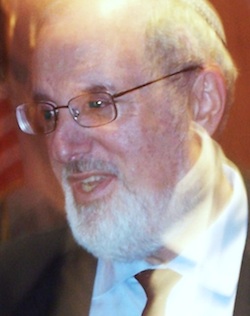By Janis Siegel, JTNews Correspondent
As anti-Semitism resurges around the world, and Jews, once again, top the FBI’s most recent list of religious hate-crime victims in the U.S. by a whopping 71.9 percent, what many people may find surprising is that the most threatening enemy to world Jewry today might just be Jews themselves.
The intolerance and hatred between religious and nonreligious Jews divided by differing ideologies, as well as the overall failure of non-Orthodox Jews to give the next generation a solid Jewish education, might both deliver the most fatal blows of all to the survival of the Jewish people.
So said Rabbi Marc Angel, the Seattle-born-and-raised Sephardic rabbi emeritus of New York City’s Congregation Shearith Israel, and Sephardic Congregation Ezra Bessaroth’s scholar-in-residence last weekend. He told an audience of 85 community members on March 24 that Jews across the spectrum of belief need to see the “grace” and the “charm” in each other to stem the tide of alienation and, in many cases, downright contempt.
“We should realize that we’re all in it together,” Angel told the crowd in his talk, “Orthodox and Non-Orthodox Jews: Can We Learn from Each Other?” “Instead of hurting each other, let’s use our energies to defend ourselves from the enemy.”
Reform and “liberal” Jews simply reject the Orthodox authoritarian structure that dictates behavior by prescribing a “we make the rules and you listen to us — I’ll tell you how it is and you follow” doctrine, Angel said.
In contrast, liberal and Reform Jews see themselves as advocating for more democratic values, including the political concept of social justice, intellectual freedom, and freedom of speech and thought, he said.
“Let’s look at each other not as members of a movement or members of an ideology,” said Angel, “but as fellow human beings and fellow Jews who might have something new to teach us.”
Still, said Angel, the stereotypes persist: While Orthodox Jews are seen as insular, using their financial resources to afford private religious schools for their children, maintain ritual bath centers known as mikvot, and observe the Sabbath, liberal Jews view themselves as more humanitarian, with an externally focused worldview that cares about all people, not just Jews.
“We should be liberal and democratic,” said Angel, “but we shouldn’t be suicidal. The Orthodox have something important we’re doing right that they can learn from us, and we need to be compassionate and inclusive, but at the same time, we need to have a borderline.”
Although Angel didn’t offer any evidence in support of his claim to the current rise in animosity between Jewish denominations, both members and nonmembers in attendance said they have seen it themselves, and they appreciate the discussion.
“It’s sort of a hotbed in the American Jewish world and people are really being divisive,” longtime Ezra Bessaroth member Sal Cohen told JTNews. “I just can’t get over how Jews have gotten so angry at each other. That’s just not my approach to anything I do and I think a lot of people, including myself, are really anxious for this kind of approach.”
Nondenominational rabbi Charna Klein also agreed with Angel. Klein told JTNews that Jews need to rethink their relationships with each other and make them stronger.
“I think that the acrimony that Rabbi Angel was talking about between the Reform and the Orthodox is definitely there,” said Klein. “We need to work to bring our people together and to be more unified instead of this split into separate Jewish peoples. It’s not an easy thing to do, to have your own identity and, at the same time, respect everybody else. And yet, we have to do that for the sake of the Jewish people, as a whole.”
But while some are calling for improved relations among the different types of religious observance as a way to strengthen the Jewish community from within, Angel noted a far more ominous threat to the survival of the Jewish people, citing 2005 data projections from a 2000 National Jewish Population Survey.
Using the 2000 NJPS intermarriage rate and the average number of children for women in each group, researchers looked at 100 people between the ages of 18 to 39 in five groups, the Hasidic/Orthodox, the centrist Orthodox, the Conservative, the Reform, and the secular. They calculated that within four generations there will be almost no trace of young American Jews not currently being raised in Orthodox homes with a complete Jewish day school education.
After four generations, the research showed, 100 secular Jews would have seven Jewish descendants; Reform Jews, 10, Conservative Jews, 49, Centrist Orthodox Jews, 434, and Hassidic/Orthodox, 3,401.
“Where’s the continuity coming from?” said Angel. “The continuity is coming from the Orthodox.”
Cohen sees these grim future Jewish population projections for the secular and the Reform as a wake-up call, telling him that something needs to change — but maybe not too fast and not too much.
“As I get older, I get a little more open to this idea, but when it gets too hardcore, it’s a turnoff,” added Cohen.
Charlene Kahn, a former seniors programming director who is active in interfaith issues, preferred to stay focused on the rabbi’s central message of acceptance and inclusivity.
“I think that life is like a pendulum and we’re swinging towards the right, right now,” said Kahn. “Those who are saying ‘Let’s look in each other’s eyes, let’s be positive, invite each other in, and be hospitable, that’s the proper thing to be saying and that’s really what Judaism is all about. Rabbi Angel is saying that.”
